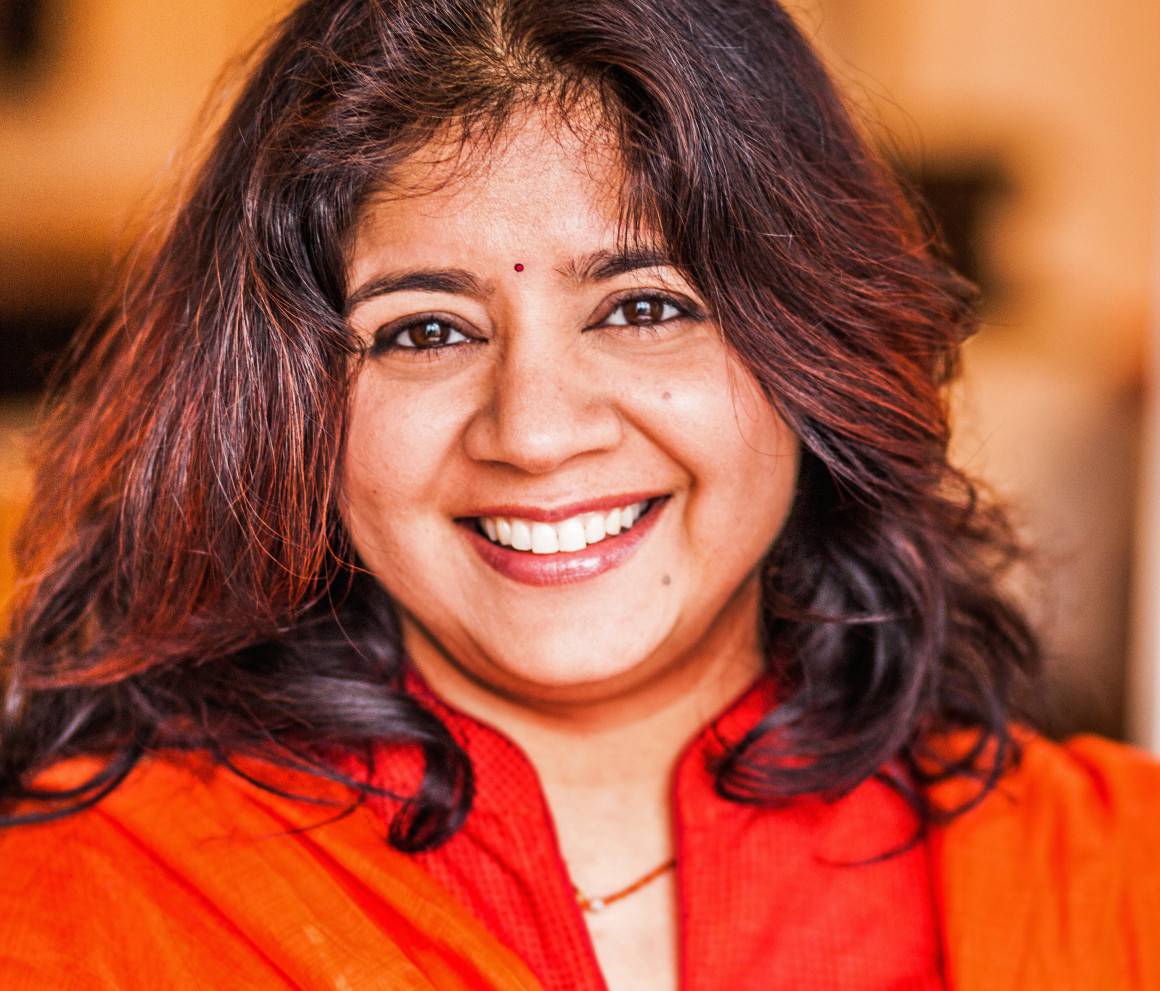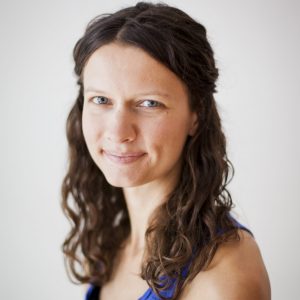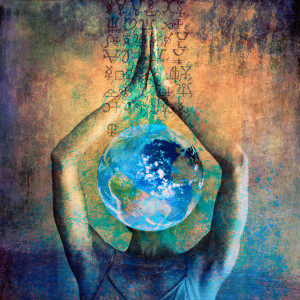I was mesmerized the first time I heard Indu Arora speak about yoga and Ayurveda. She came across like a caring friend, with her cheerful demeanor and colorful clothes. But she was also a sorceress with her words, synthesizing deep teachings into one-liners that felt so straightforward and accessible I almost didn’t notice the depth of what she was doing.
And therein lies one of her great gifts—that ability (and desire) to use the deep teachings of yoga and Ayurveda to bring simplicity to people’s busy and complex lives. Indu’s knowledge is rooted in decades of advanced studies in her home country of India, including a doctorate of alternative medicine. But in the end, this self-declared “student for life” has a skillful way of pointing you back toward the student—and teacher—within yourself.
“Do not believe anything just because I said it, because a great elder has said it, because you’ve read it in a sacred text,” she’ll often say. “Put it into practice—see for yourself what is true.”
Here, we talk to Indu about Ayurveda, food as medicine, and becoming a student of your own experience.
How did your relationship with yoga and Ayurveda begin?
That relationship began as a child when I saw my father practicing yoga every morning and the relationship with my mother with food and how she combined different foods, herbs, and spices together. When something would happen to us, like a stomachache or headache or if we hurt ourselves, she would immediately bring some home remedies to help us, and that really impressed me as a child. I used to have a journal, and my journal was of home remedies. I would hear from my grandmother or my mother, this would help with this, and I would make a note of it.
That’s a slightly different journal than many children have.
Right?! [Laughs.] That’s because I had slightly different curiosities than others had. I think that’s the material I’m made up of.
You’re now a yoga therapist, teacher, author, Ayurveda consultant, herbalist, reflexologist, teacher trainer, and food advisor. How do these things weave together to create your purpose in life?
All these things you have shared, there is one anchor point to them: What are the different ways in which you can come back to yourself, whether it is food, yoga, meditation, the sharing of experiences? That coming back to self is the most important thing you will ever do in life.
I feel the most important practice in the practice of living a mindful life, in the practice of living a yogic life, is to constantly take pauses. It’s to constantly allow space for reflection, contemplation, and self-inquiry. When we do not give importance to such pauses, life becomes robotic. Then we eat whatever is around us as food, without realizing there is a choice. We always have a choice. But the question of choice arises when we know that there is choice to pause also. It is not always choosing between the two; at times you can stay still. That is also a choice.
A lot of Westerners are familiar with yoga but not so much Ayurveda, though that’s starting to change. Why do you think we’ve so massively adopted one but largely left out this sister science?
Ayurveda and yog always go together. When you are aware of one kind of food—that is, your practice—that naturally makes you curious to understand what are the other kinds of food you’re taking in, whether it is mental food, emotion, belief, etc. So it is natural for people to now have this curiosity to move toward Ayurveda, this science and wisdom of life, and one main part of it is healing through food.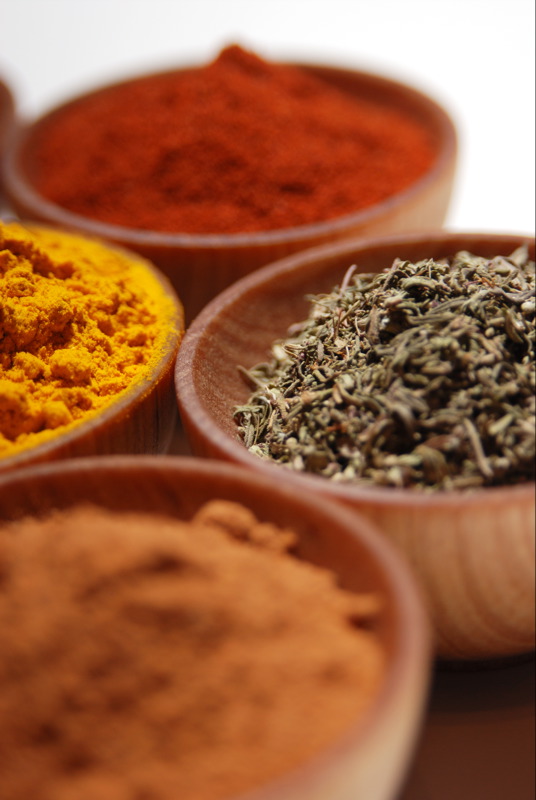
Ayurveda is the medical science of India. But it can also be understood by the masses as understanding what to eat, when to eat, and how much to eat. When I say what to eat, it is based upon the time of the season, the time of the day, your specific age, your constitution, your digestive fire. But there is also the other aspect of Ayurveda which is the combination of herbs, which goes so much deeper.
I feel like everyone can benefit from the basic concepts of Ayurveda, and most people simply need education on food in order to be healthy. But I also feel some fear come up from people: Will I be able to do it all? Will I be able to digest all this information? Just like in yog, first the asana part of yog is easily digestible, but now I feel like there is overall hunger for more. Everywhere I am traveling I see that people are ready to go into the depths of yoga. Now I have tasted this, this was good, this was delicious. Now can you give me more?
Ayurveda is a medical system, but we don’t all need to become surgical doctors. We can understand how to do surgery on ourselves without scissors. In your practice, when you are on your mat, it’s like a surgery: You peel layers and layers in trying to reach that still point. And so with the food: You do surgery with food. When I eat this, what happens to my body? What combination brings me the most stillness, and what combination brings me the most movement? So at one point you will dive deeper, and I feel that will be a natural progression. People should look at it as another tool that’s going to bring you health and healing in a very practical way instead of looking at it from fear and trying to do everything that is a part of Ayurveda. You know, just one step at a time.
I’ve felt that myself, because I’ve read a lot about Ayurveda and have gotten overwhelmed when I think about all the things I could do for my constitution. So I love what you’re saying about starting somewhere and you’ll be ready for more as you progress—and trust in that.
Trust in that and also, how exhaustive can a list be? In different parts of the world, there are different foods, different spices, different kinds of beans, and different kinds of means. How will you ever find a list that tells you everything you need to buy and prepare, exactly how you’re supposed to cook it? That is an endless search. At times we set ourselves up for failure trying to look for the perfect answer. It is good to simplify your life. Instead of going into the list, start being mindful. When I eat this, what happens? Do I feel dull and heavy after this food? Then it’s clearly creating more kapha. Do I feel active and energetic, do I feel more indulgent, like I want to have a glass of wine, I want to have a piece of chocolate, I want to go do this? That creates rajasic movement. Or does it make you more calm and clear, is it easy to digest? Just watch these responses.
Wouldn’t that be simpler and more educative, to start taking responsibility for your life instead of pushing it on someone else, like a guru or website, that oh I downloaded this list? You can become so focused that it’s almost not being focused—it becomes a tension. And you can create tension for your whole family, because what will my child eat according to his constitution, what will my husband eat according to his constitution? And so on and so forth. So instead of something that’s supposed to simplify your life, you have actually complicated it. That’s not the purpose.
So you suggest becoming a scientist or student of your experience and slowing down and being mindful with that?
Exactly. Just listen to your body; your body communicates. It’s in its innate nature to communicate. Even when you are sitting quiet and not saying anything with your eyes closed, and you are in a relaxed state of mind, you are rippling relaxation. And even if you are quiet and you are sad inside, you are rippling that sadness, that grief.
The only thing that is required when we communicate is to listen. These two words—listen and silence—they use similar letters. We need to be silent in order to listen. And when you listen, you naturally create space for communication.
So many people ask what kind of yoga do you teach? My answer is I teach the yoga of commonsense. That is my style. Ask yourself: How do you feel after a certain practice? How do you feel after a certain pose? How do you feel after pranayam? What has it stirred and what has it stilled? Just observe these two things. And same with the food.
You talk about food as medicine, and I think there are a lot of instances in our society of eating that isn’t mindful and doesn’t create health in the body. Do you have any perspective on how to work with that?
When we eat food out of a sense of craving, the craving comes from an emotional level. When we crave something spicy, sweet, or sour, if you understand the alchemy of the tastes, each taste relates to an emotion, so then a craving is not a craving for the body to seek health, but a craving that is superficial. It comes to satisfy a specific emotion. What can be done at that point, from yogic point of view, if you have time and awareness, practice nadi shodan, because your nervous system is wired in a certain way to respond when you have cravings. You can switch that activity of the nervous system from sympathetic to parasympathetic by practicing alternate-nostril breathing. Of if you are in a place where you cannot do that, merely focus on your left nostril.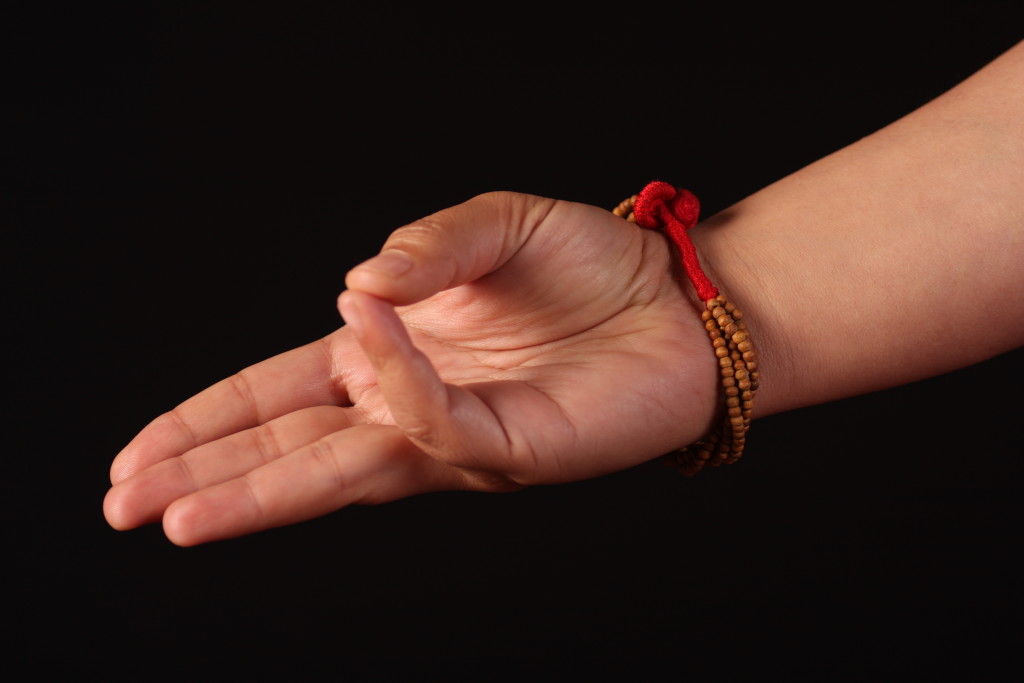
There’s also a book I released called “Mudra: The Sacred Secret,” and it talks about a mudra called the mudra of the water gesture, which is done by joining the little finger with the thumb. When you join the little finger pad with the thumb pad, it activates the water element in the body. The water element is related to emotion, and it allows the emotions to flow instead of becoming stagnant and then swelling and driving into craving.
So much of Ayurveda and yoga therapy is specific to individuals and their constitutions, but is there a daily routine or ritual you’d recommend to women for their health and well-being?
A very simple ritual would be to be mindful of your self-worth. I feel that so many women get trapped into situations and relationships in their own mind, because they do not have a clear understanding of their self-worth. So it’s not a ritual like clean the tongue or swish the oil or drink this ghee, it would be when you look into the mirror, really look into the mirror and know that you deserve so much, do not settle for less—whether in your practice or in your life, do not settle for less.
If that spark is there, everything else will fall into place. You will seek ways and practices to bring yourself back to your full potential. It cannot be one single ritual that will work for every single woman. But this thing can work for every woman or man or child, but I would say specifically for women because I feel like women are the pioneers in society. Women are the shakti of the universe, they are the energizer of the universe, so they need to reside in their strength and self-worth. If they reside in their self-worth, our society will take a completely new direction. It will transform in ways none of us can imagine.
Note: This interview has been edited and condensed. Photos (top to bottom) courtesy of Indu Arora, Josh Kellogg (cc), and "Mudra: The Sacred Secret"

